Recent Blog Posts
What Happens if the At-Fault Driver Has No Insurance in Virginia?
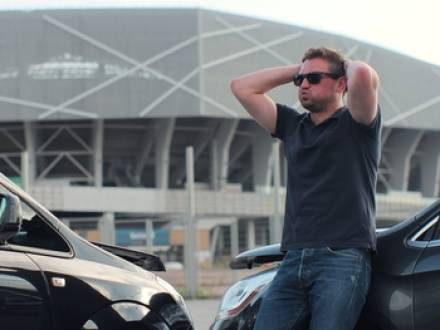 As of 2026, if the at-fault driver has no insurance in Virginia, you may still be able to recover compensation. However, your options depend largely on your own insurance coverage and the steps you take after the car accident. While many people assume there is nothing they can do, Virginia law provides specific paths forward even when the other driver is uninsured.
As of 2026, if the at-fault driver has no insurance in Virginia, you may still be able to recover compensation. However, your options depend largely on your own insurance coverage and the steps you take after the car accident. While many people assume there is nothing they can do, Virginia law provides specific paths forward even when the other driver is uninsured.
Uninsured driving is a real and ongoing issue. According to data shared in 2025 by the National Association of Insurance Commissioners, research from the Insurance Research Council shows that 15.4 percent of motorists nationwide, or about one in seven drivers, are uninsured.
If you were injured in an accident, the Fairfax, VA car accident lawyer at Robinson Law, PLLC can help you understand how the rules apply to your situation.
Can Strangulation Charges Be Filed Without Visible Injuries?
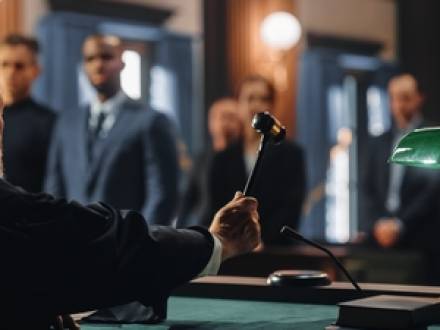 As of 2026, Virginia courts continue to treat strangulation allegations as high-risk offenses. Prosecutors do not need bruises, marks, or photographs of the neck to move forward with a case.
As of 2026, Virginia courts continue to treat strangulation allegations as high-risk offenses. Prosecutors do not need bruises, marks, or photographs of the neck to move forward with a case.
What matters is whether the allegation involves restricted breathing or blood flow. This surprises many people. A 2025 statewide report from the Virginia Sexual and Domestic Violence Action Alliance found that nearly 16 percent of cases involve alleged victims reporting having their breathing blocked or obstructed.
Because of how these cases are handled, it is important to understand your rights early. If you are being investigated or charged, our Fairfax, VA strangulation defense lawyer can help. We will explain what prosecutors must prove and how these cases typically move forward.
Can I Sue if I Get Hurt on a Bus in Virginia?
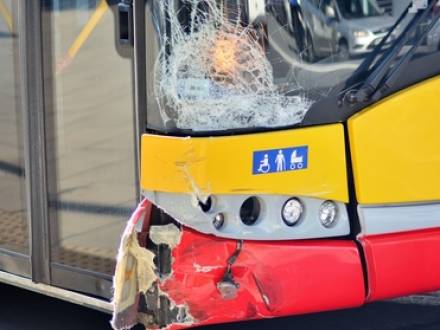 As of 2025, Virginia law still allows injured passengers and pedestrians to bring claims after bus-related injuries in certain cases. It depends on who owns or operates the bus, how the injury happened, and which legal rules apply. Bus injury cases are different from regular car accident claims because many buses are owned or run by government agencies.
As of 2025, Virginia law still allows injured passengers and pedestrians to bring claims after bus-related injuries in certain cases. It depends on who owns or operates the bus, how the injury happened, and which legal rules apply. Bus injury cases are different from regular car accident claims because many buses are owned or run by government agencies.
If you think you might have a claim, our Fairfax, VA public transportation injury lawyer can help. Bus accident claims can involve strict deadlines and special notice requirements that do not apply in other injury cases, so you need strong legal representation to fight for fair compensation.
Can I Sue the City or State for a Bus Injury in Virginia?
Virginia allows certain injury claims against government entities, but only if specific rules are followed. The Virginia Tort Claims Act, found at Virginia Code § 8.01-195.1, explains when the Commonwealth of Virginia can be held responsible for injuries caused by government employees. For example, this may apply if a government-operated bus driver causes a crash while performing job duties.
Can You Be Charged for Prescription Drugs at the Airport in Virginia?
 If you have a prescription medication, it makes sense that you would bring it with you when you travel. You may even need to carry extra. However, how you carry them is very important. Carrying your meds improperly can cause legal problems at airport security. In Virginia, airport drug investigations can involve both state and federal law. An experienced Fairfax, VA drug crimes defense lawyer can explain your rights and what to do if you are questioned or charged.
If you have a prescription medication, it makes sense that you would bring it with you when you travel. You may even need to carry extra. However, how you carry them is very important. Carrying your meds improperly can cause legal problems at airport security. In Virginia, airport drug investigations can involve both state and federal law. An experienced Fairfax, VA drug crimes defense lawyer can explain your rights and what to do if you are questioned or charged.
Can You Be Arrested for Carrying Prescription Pills Without the Label?
Carrying prescription medicine in the original labeled container is the safest option. Without it, police may suspect the medication is not legally yours, especially if it is a controlled substance. The government sets strict rules on how these drugs are made and used because they can be misused if not handled correctly.
What Damages Can You Sue for After a Pedestrian Accident?
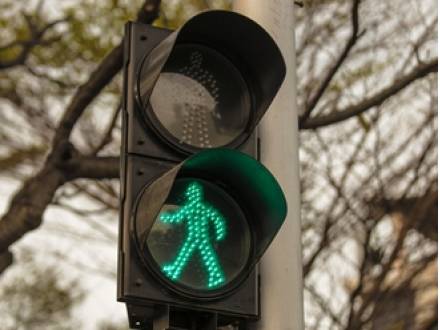 Victims of pedestrian accidents often face significant pain, medical bills, and time away from work. If you were struck by a car, you may be able to file a claim or lawsuit for compensation under Virginia law. However, the burden of proving fault and your losses falls on you. An experienced Fairfax, VA personal injury attorney from Robinson Law, PLLC can help.
Victims of pedestrian accidents often face significant pain, medical bills, and time away from work. If you were struck by a car, you may be able to file a claim or lawsuit for compensation under Virginia law. However, the burden of proving fault and your losses falls on you. An experienced Fairfax, VA personal injury attorney from Robinson Law, PLLC can help.
Determining Fault in a Pedestrian Accident
To recover money for your injuries, you must first prove that someone else was at fault. Virginia uses a strict rule called contributory negligence. If the insurer proves that you were even slightly negligent, you may be barred from recovering compensation.
In these cases, fault is usually based on negligence. For example, a driver who was texting, speeding, or failing to yield at a crosswalk may be considered negligent. Police reports, video footage, and witness statements can help show what happened. Your lawyer can also work with experts who recreate the accident to show exactly how the driver caused your injuries.
Can Field Sobriety Test Results Be Wrong?
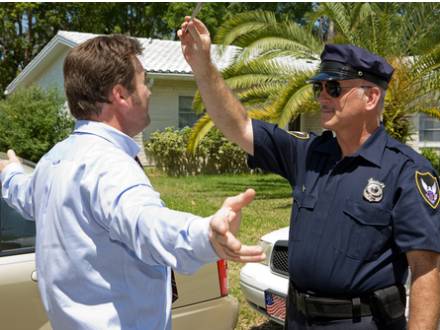 Field sobriety tests are often used during traffic stops when an officer believes a driver may be impaired. They are meant to measure things like your balance, coordination, and ability to follow instructions. However, these tests are known to be unreliable. They can produce results that suggest impairment even when you are sober. If you were arrested for DUI based on failed field sobriety tests, you need legal representation immediately. A Fairfax, VA DUI defense lawyer can help you build a strong defense based on the facts of your case.
Field sobriety tests are often used during traffic stops when an officer believes a driver may be impaired. They are meant to measure things like your balance, coordination, and ability to follow instructions. However, these tests are known to be unreliable. They can produce results that suggest impairment even when you are sober. If you were arrested for DUI based on failed field sobriety tests, you need legal representation immediately. A Fairfax, VA DUI defense lawyer can help you build a strong defense based on the facts of your case.
How Do the Police Judge Field Sobriety Tests in Virginia?
Under Va. Code § 18.2-266, it is unlawful to operate a vehicle while you are impaired by alcohol or drugs. Before making an arrest, the officer must have probable cause. Field sobriety tests are often used to support that cause, even though they are not always reliable.
What Is Considered a Catastrophic Injury Under Virginia Law?
 A catastrophic injury can substantially change your life. It causes long-term or permanent harm that makes it hard to work, care for yourself, or live the way you did before. These injuries often lead to lasting physical pain, emotional trauma, and financial stress.
A catastrophic injury can substantially change your life. It causes long-term or permanent harm that makes it hard to work, care for yourself, or live the way you did before. These injuries often lead to lasting physical pain, emotional trauma, and financial stress.
Virginia law allows you to seek compensation if someone else’s careless or reckless actions caused your catastrophic injury. While the law does not use the exact phrase "catastrophic injury," the courts recognize this type of injury as one that leads to serious, permanent damage that prevents you from returning to your normal routine or job. Contact our Fairfax, VA personal injury lawyers to learn about your rights and options.
Examples of Catastrophic Injuries That Could Result in a Personal Injury Claim
Some common examples of catastrophic injuries that can result in a personal injury claim include:
Is Shoplifting a Felony or Misdemeanor in Virginia?
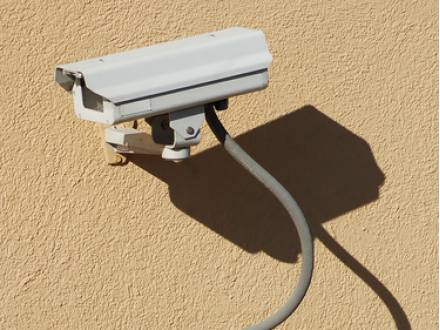 When it comes to shoplifting in Virginia, a simple mistake or misunderstanding can quickly become a criminal case. Whether the charge is a misdemeanor or a felony depends on the value of the items you were accused of taking and whether you have a criminal history. Whatever the charge may be, you have the right to fight it in court. If you have been accused of shoplifting, our experienced Fairfax, VA shoplifting defense lawyers can help. We will listen closely to the details leading up to and after your arrest to build a strong defense strategy aimed at protecting your rights.
When it comes to shoplifting in Virginia, a simple mistake or misunderstanding can quickly become a criminal case. Whether the charge is a misdemeanor or a felony depends on the value of the items you were accused of taking and whether you have a criminal history. Whatever the charge may be, you have the right to fight it in court. If you have been accused of shoplifting, our experienced Fairfax, VA shoplifting defense lawyers can help. We will listen closely to the details leading up to and after your arrest to build a strong defense strategy aimed at protecting your rights.
How Does Virginia Law Define Shoplifting?
Under Virginia Code § 18.2-103, shoplifting means taking or hiding store items with the intent to steal them. This includes switching price tags, hiding items in a bag or clothing, or walking out with an item without paying. The law does not stipulate that leaving the store is necessary to be charged. The prosecution can use the circumstances, no matter how innocent, to say that you concealed an item with the intent to steal it.
Who Do I Sue if I Was Hit by an Overloaded Truck in Virginia?
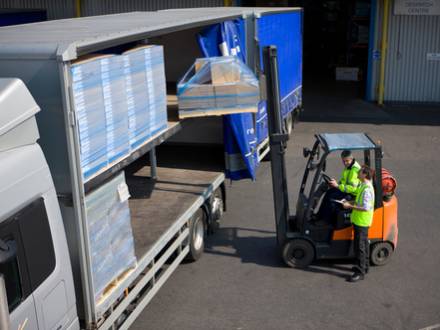 Being struck by a truck that weighs thousands of pounds when empty can cause devastating damage. When that same truck is overloaded beyond safe limits, the risks multiply. It becomes harder for the truck to stop, more likely for it to tip over, and far deadlier in a collision.
Being struck by a truck that weighs thousands of pounds when empty can cause devastating damage. When that same truck is overloaded beyond safe limits, the risks multiply. It becomes harder for the truck to stop, more likely for it to tip over, and far deadlier in a collision.
If you or a loved one has been hit by an overloaded truck in Virginia, you may be entitled to compensation for losses. The first step is to talk to an experienced Fairfax, VA truck accident lawyer who can guide you through the civil process and fight to protect your right to a fair settlement.
Why Are Overloaded Trucks So Dangerous on Virginia Roads?
Federal regulations enforced by the Federal Motor Carrier Safety Administration (FMCSA) set maximum weight standards for commercial trucks. When these limits are exceeded, the risks increase. Heavy loads put extra stress on brakes, making it harder for a driver to stop in time. Tires can burst under pressure, causing the driver to lose control. Overloaded trailers are also more likely to roll over, especially on Virginia’s mountainous highways, including steep stretches of I-81.
Can False Accusations of Domestic Violence Be Challenged in Court?
 Facing a false accusation of domestic violence can turn your entire life upside down. In Virginia, even before a case reaches trial, an arrest or protective order may take effect. This can impact your reputation, job, and family relationships. However, you have the right to challenge the charges against you, and our experienced Fairfax, VA domestic violence lawyers can help you build a defense, giving you a chance to clear your name.
Facing a false accusation of domestic violence can turn your entire life upside down. In Virginia, even before a case reaches trial, an arrest or protective order may take effect. This can impact your reputation, job, and family relationships. However, you have the right to challenge the charges against you, and our experienced Fairfax, VA domestic violence lawyers can help you build a defense, giving you a chance to clear your name.
Common Reasons for False Domestic Violence Allegations
False claims of domestic violence often arise in the middle of personal disputes. One of the most common situations is during divorce or custody battles, when one parent may try to gain leverage by accusing the other of abuse. Courts are authorized, under Virginia Code § 16.1-279.1, to issue protective orders in family abuse cases, and judges often take these allegations into account when determining custody or visitation. Because protective orders can immediately restrict contact with children or limit access to the family home, some individuals may misuse the process to gain an advantage.

We Defend. We Recover.
You Move Forward
When You Call Robinson.
The use of the Internet or this form for communication with the firm or any individual member of the firm does not establish an attorney-client relationship. Confidential or time-sensitive information should not be sent through this form.
I have read and understand the Disclaimer and Privacy Policy.
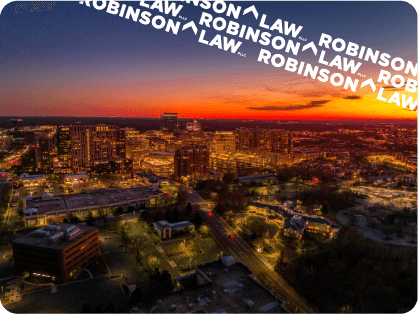
Call 703-844-3746 Today
and Get the Help You Need










